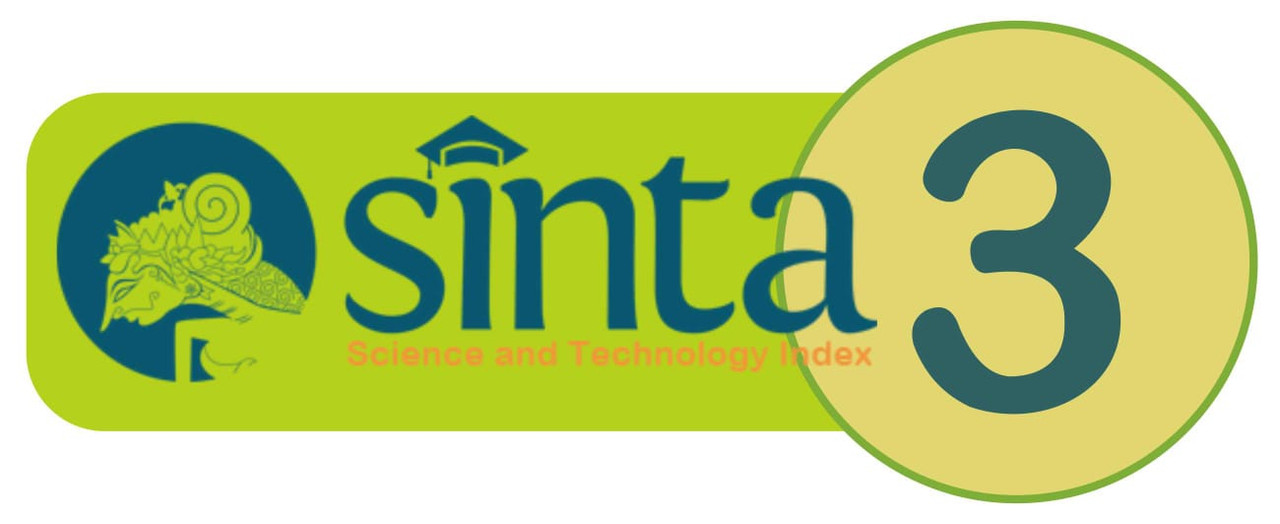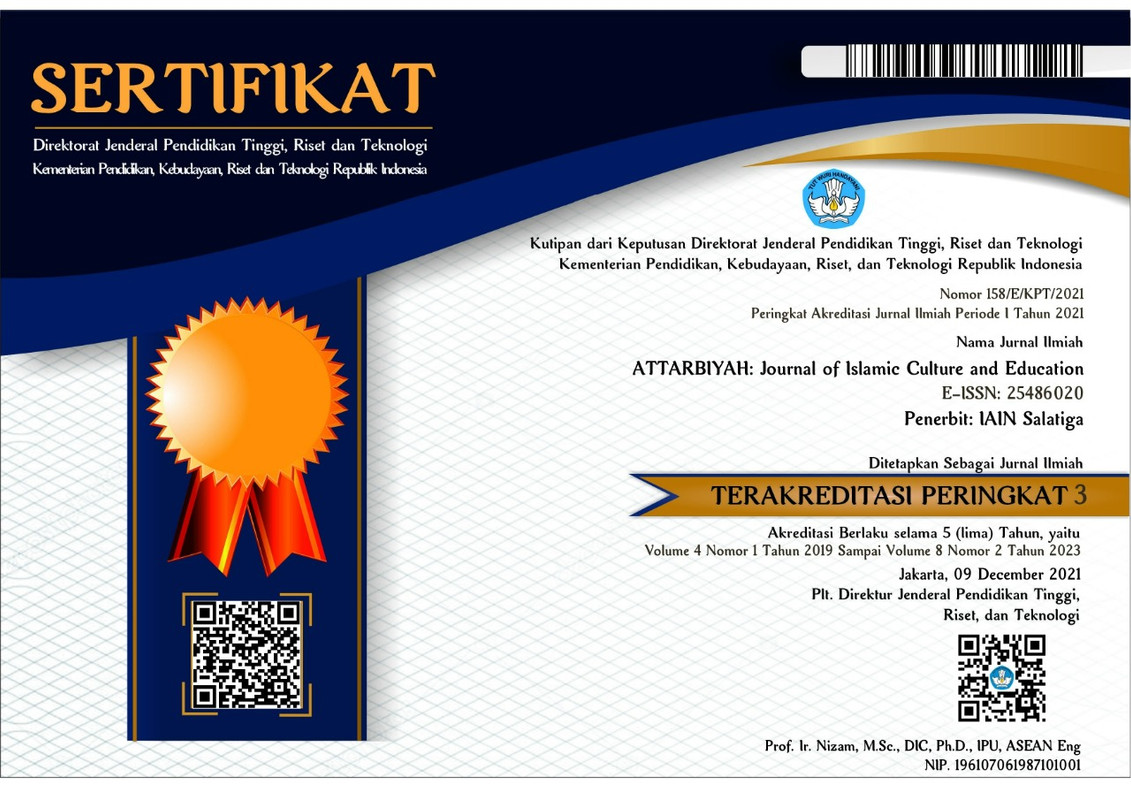Power relation and knowledge: linking Islamic education to socio-political reform in Saudi Arabia
DOI:
https://doi.org/10.18326/attarbiyah.v9i2.157-172Keywords:
Islamic education, curriculum reform, Saudi Arabia, power relationsAbstract
Saudi Vision 2030, conveived by His Royal Highness Prince Muhammad bin Salman (MBS), represents a transformative initiative to foster openness and shift away from Wahhabism to establish a more moderate Islam. As part of this vision, the reform of the Islamic education curriculum plays a crucial role. This study examines the curriculum reform processes and strategies, focusing on Dirasat Islamiyah textbooks addressing inter-religious and intrareligious relations. Employing a qualitative approach and text analysis, the research applies Michel Foucault's theory of power-knowledge relations to analyze the state's role in shaping educational content. The findings reveal that the reformed curriculum seeks to construct and internalize ideologies that align the younger Saudi generation with the moderate Islam agenda of MBS's government, supporting Saudi Vision 2030. This study contributes to the theoretical discourse on power-knowledge dynamics by showcasing education's role in advancing state-driven ideological shifts during significant socio-political reforms.
References
Al-Rasheed, M. (2010). A History of Saudi Arabia. Cambridge University Press.
Al-Isa, A. (2009). Al-Ishlah al-Ta'lim fi al-Su'udiyah baina Ghiyabi al-Ru'yah al-Siyasiyah wa Tawajjus al-Tsaqafah al-Diniyyah wa 'Ajzi al-Idarah al-Tarbawiyyah. Dar al-Saqi.
Al-Otaibi, N. (2020). Vision 2030: Religious Education Reform in the Kingdom of Saudi Arabia.
Alyusufi, R. (2023, Januari 9). The Sacred Journey: Saudi Arabia's Uncomeatable Soft Power and Its Burden. USC Center on Public Diplomacy. https://uscpublicdiplomacy.org/blog/sacred-journey-saudi-arabia%E2%80%99s-uncomeatable-soft-power-and-its-burden.
Aswar, H. (2016). Politik Luar Negeri Arab Saudi dan Ajaran Salafi-Wahabi di Indonesia. Jisiera: The Journal of Islamic Studies and International Relations, 1(1), Article 1. https://doi.org/10.5281/zenodo.4606669.
Athanasoulia, S. (2020). From 'Soft' to 'Hard' to 'Moderate': Islam in the Dilemmas of Post-2011 Saudi Foreign Policy. Religions, 11(4). https://doi.org/10.3390/rel11040211.
Cooper, R. C. (2024, Februari 22). The future of Saudi-Israeli relations is a balancing act between Palestinian and regional interests. https://www.atlanticcouncil.org/blogs/menasource/Saudi-arabia-israel-two-state-gaza-normalization/
Dumairieh, N. (2021). Intellectual Life in the Hijaz before Wahhabism: Ibraham al-Kurani's (d.1101/1690) Theology of Sufism. Dalam Intellectual Life in the Hijaz beforeWahhabism. Brill. https://brill.com/display/title/61156.
FBI. (2001). Osama bin Laden [Page]. Federal Bureau of Investigation. https://www.fbi.gov/history/famous-cases/osama-bin-laden.
Foucault, M. (1995). Discipline and Punish: The Birth of the Prison Terj. Alan Sheridan. Vintage Books.
Foucault, M., & Gordon, C. (1980). Power/Knowledge: Selected Interviews and Other Writings, 1972-1977. Pantheon Books.
Hegghammer, T. (2010). Jihad in Saudi Arabia: Violence and Pan-Islamism since 1979. Cambridge University Press.
Hein, M. V. (2017, Juli 9). Saudi Arabia “exports extremism” to many countries. Dw.Com. https://www.dw.com/en/saudi-arabia-exports-extremism-to-many-countriesincluding-germany-study-says/a-39618920.
Ismail, R. (2023). Saudi Salafi clerics under MBS: Reform and survival. Crown Center for Middle East Studies.
Lee, S., Lee, J.-H., & Jeong, Y. (2023). The Effects of Digital Textbooks on Students' Academic Performance, Academic Interest, and Learning Skills. Journal of Marketing Research, 60(4), 792–811. https://doi.org/10.1177/00222437221130712.
Li, F., & Wang, L. (2024). A study on textbook use and its effects on students' academic performance. Disciplinary and Interdisciplinary Science Education Research, 6(1), 4. https://doi.org/10.1186/s43031-023-00094-1.
Marghalani, S. A.-R. A. (2017). Islamic Education in Saudi Arabia. Dalam H. Daun & R. Arjmand (Ed.), Handbook of Islamic Education (hlm. 1–14). Springer International Publishing. https://doi.org/10.1007/978-3-319-53620-0_28-1.
Morocco World News. (2018). Spread of Wahhabism was Done at Request of West: Saudi Crown Prince. https://Www.Moroccoworldnews.Com/.https://www.moroccoworldnews.com/2018/03/243388/spread-wahhabism-done-request-west-cold-war-saudi-crownprince.
Pratiwi, A., & Muslikhati, S. (2024). Implementation of Saudi Vision 2030 Towards Saudi Arabia's Internationally Open Tourism Industry. Jurnal Indonesia Sosial Sains, 5(01), 85–102. https://doi.org/10.59141/jiss.v5i1.983.
Quamar, M. (2021). Education System in Saudi Arabia: Of Change and Reforms. https://doi.org/10.1007/978-981-15-9173-0.
Sarah, S., Arifin, N. F., Ramona, E., & Adam, Y. F. (2023). Modernisasi Arab Saudi Era Muhammad bin Salman. Substantia: Jurnal Ilmu-Ilmu Ushuluddin, 25(2), Article 2. https://doi.org/10.22373/substantia.v25i2.19688.
Shea, N. (2023, September 18). Teaching Hate, Inspiring Terrorism: Saudi Arabia's Educational Curriculum | Hudson [Hudson Institute]. https://www.hudson.org/national-securitydefense/teaching-hate-Inspiring-terrorism-saudi-arabia-s-educational-curriculum.
Sianturi, N. (2017). Pengaruh Saudi Vision 2030 dan Agenda Foreign Direct Investment(Fdi) Arab Saudi di Indonesia. 4(2).
Solichien M, Y. (2014). Saddam Hussein; Kisah di Balik Perang Teluk 1990-1991 (I). PT Elex Media Komputindo.
The Week. (2015, Agustus 8). How Saudi Arabia exports radical Islam. Theweek. https://theweek.com/articles/570297/how-saudi-arabia-exports-radical-islam.
Vassiliev, A. (2000). The History of Saudi Arabia. Saqi Books.
Vision 2030. (2023) . The Embassy of The Kingdom of Saudi Arabia. https://www.saudiembassy.net/vision-2030.
Young, R. (1981). Untying The Text: A Post-Structuralist Reader. Routledge & Kegan Paul
Downloads
Published
How to Cite
Issue
Section
License
Copyright (c) 2024 Ainiyatul Latifah, Ade Solihat

This work is licensed under a Creative Commons Attribution-ShareAlike 4.0 International License.







